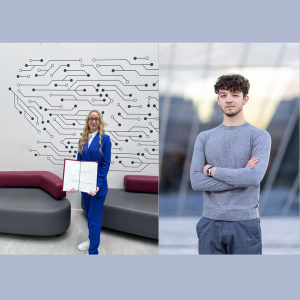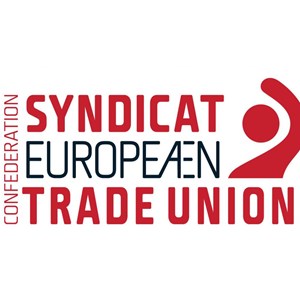On Tuesday, March 4, a meeting of the technical committee SIST/TC UMI, dedicated to Artificial Intelligence, was held at the Slovenian Institute for Standardization. Aleksander Velkavrh, a young Standardization Ambassador and a student at the Faculty of Electrical Engineering, as well as Bojana Bogičević, a participant of the Autumn School of Standardization and also a student at the Faculty of Electrical Engineering, joined the meeting. Both had the opportunity to learn about the process of reviewing and adopting standards at the national level.
Aleksander explained that at the beginning of the meeting, they reviewed general documents and discussed updates since the previous meeting, with a particular focus on the Artificial Intelligence Act. This act defines prohibited practices that are deemed unacceptable due to their negative impact on society, include manipulation, exploitation of vulnerable groups, social scoring, crime prediction based solely on profiling, and mass facial recognition image collection without consent. At the same time, the legislation provides for certain exceptions, such as use for national security and research purposes, as well as personal use. Violations of these provisions carry high penalties, which can have serious consequences for businesses. They also discussed the definition of Artificial Intelligence, which the act describes as software that use machine learning, logical reasoning, or statistical methods to autonomously generate outputs based on data.
Bojana emphasized that participating in the SIST technical committee gave her insight into the complex processes behind standard development. These committees bring together experts from various fields who collectively discuss, analyse, and decide on what should be accepted as a standard. These experts play a crucial role in shaping standards that affect everyday life. Their work ensures that standards are not only focused on product quality but are also practical and beneficial for all stakeholders.
The meeting provided both students with a valuable understanding of the standardization processes and the importance of technical committees in shaping regulations that impact various aspects of modern society. They gained insight into how national committee sessions are conducted and realized the significance of these processes. The experience broadened their perspective on the influence of standardization and its key role in technological development.




